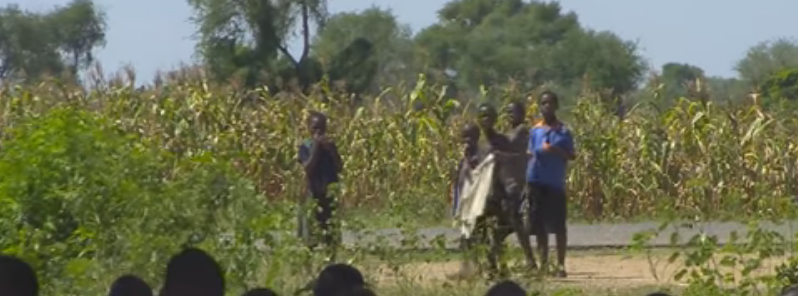Drought followed by severe food shortage in Malawi

Peter Mutharika, the President of Malawi, South Africa, declared a state of national disaster over a severe food shortage triggered by drought, on April 13, 2016. The recent drought episode in South Africa is thought to be the worst one in the last 100 years.
Severe food shortage induced by persistent periods of drought presents a burning problem for parts of Africa, including the states of Zimbabwe, Malawi, Mozambique and Zambia.
"I declare Malawi (in) a state of national disaster following prolonged dry spells during the 2015/16 agriculture season," President Mutharika stated.
"The projected drop in maize harvest is estimated at 12 percent from last year's output. More people will be food insecure and will require humanitarian relief assistance for the whole of the 2016/17 consumption year," he added.

Video credit: CCTV Africa
According to the World Food Programme (WFP), 3 million residents face the hunger problem in Malawi, and 23 out of 28 regions are currently severely affected.
The WFP emphasised the country was in danger of the largest food shortage event in about ten years, in February 2016.
"The current drought situation in Malawi came on the back of a bad crop last year, due to flooding which affected parts of the country," said David Orr, the WFP's southern Africa spokesman.
"The situation is quite dire and we believe the worst is still to come. It will take a long time before the situation improves. Any improvement in the next months would be negligible."
While large parts of the country are drought-stricken, northern Malawi was affected by severe flooding during the last week and the area is still recovering.
Featured image credit: CCTV Africa

With a 12% reduction in production year-over-year, the question is, how food-secure were they last year, and how has their population changed in that same time period? It sounds like they were already on the edge, unable to weather a 12% loss, which is a problem. Humanitarian aid should include immediate needs as well as education and support.